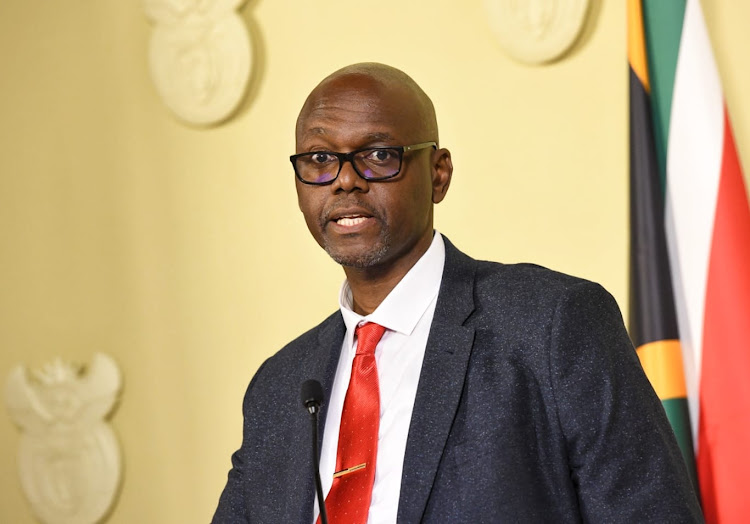By Simon Nare
President Cyril Ramaphosa is looking forward to hosting US President Donald Trump when he attends the G20 meeting of heads of state meeting in South Africa, despite a recent diplomatic row between the two countries over the Expropriation Act.
Presidency spokesperson Vincent Magwenya, who was addressing journalists on the president’s programme on Wednesday, said the government would be engaging various US government officials over the misinformation around the new law which Trump has criticised.
Trump has threatened to pull out his country’s financial aid due to the Expropriation Act recently signed into law by Ramaphosa, paving the way for national, provincial and municipalities to expropriate land for public use.
Magwenya said the government would be taking advantage of the G20 meetings that would be held in the country throughout the year.
He added that it was the intention of the president that if Trump paid the country a state visit, Ramaphosa would use that opportunity to engage him.
“We are still hoping that President Trump will visit South Africa ahead of the G20 summit when we get that final round of heads of state. It remains President Ramaphosa’s intention to welcome him on a state visit.
“So that remains an intention that the president welcomes President Trump on a state visit and that will afford the two of them an opportunity to engage on a whole range of issues of mutual interest, but also issues that may be regarded as bilateral,” said Magwenya.
He said a telephonic conversation between Ramaphosa and Trump has not taken place yet, and there was no timeline as to when the two leaders would talk.
However, Magwenya said conversations were already taking place at various levels between the two countries and the government wanted to let these discussions run their course.
These included conversations, which he described as refuting mischaracterisation of the country and the application of laws.
“Ultimately there will be a conversation between the two heads of state, but I can’t give the timeline now,” he said.
He added that US was SA’s second largest trading partner, and it was natural that there would be a butting of heads from time to time, and when that happened it was imperative to engage one another.
On allegations that South African troops on a peacekeeping mission in the Democratic Republic of Congo were in that country to protect Ramaphosa’s mining interest, Magwenya said The Presidency rejected these allegations as they were devoid of any truth.
He added that South African troops had been in various peacekeeping missions in that country for well over 20 years, and now that they were there to protect the interests of Ramaphosa was illogical.
“So, to reduce such a long commitment to the attainment of peace in the DRC, in our continent to the protection of mining interests is completely devoid of any truth and it lacks the knowledge and the appreciation of South Africa’s role in ensuring peacekeeping and ensuring stability in our continent,” said Magwenya.
Still on the DRC conflict, Magwenya said that Ramaphosa would undertake a working visit to Dar Es Salaam in Tanzania on Saturday to participate in the joint Southern Africa Development Community (SADC) – East Africa Community (EAC) Heads of State and Government Summit on the security situation in the eastern part of the DRC.
He said they had agreed to meet urgently following their respective extraordinary summits held last month to deliberate on the way forward regarding the security situation in the DRC.
“The Extraordinary SADC Summit held last month mandated the SADC Organ Troika on Politics, Defence and Security Cooperation, to engage all state and non-state parties to the conflict on a ceasefire process to protect lives and facilitate a smooth flow of humanitarian support to people and communities affected by the armed conflict,” he said.
INSIDE POLITICS

